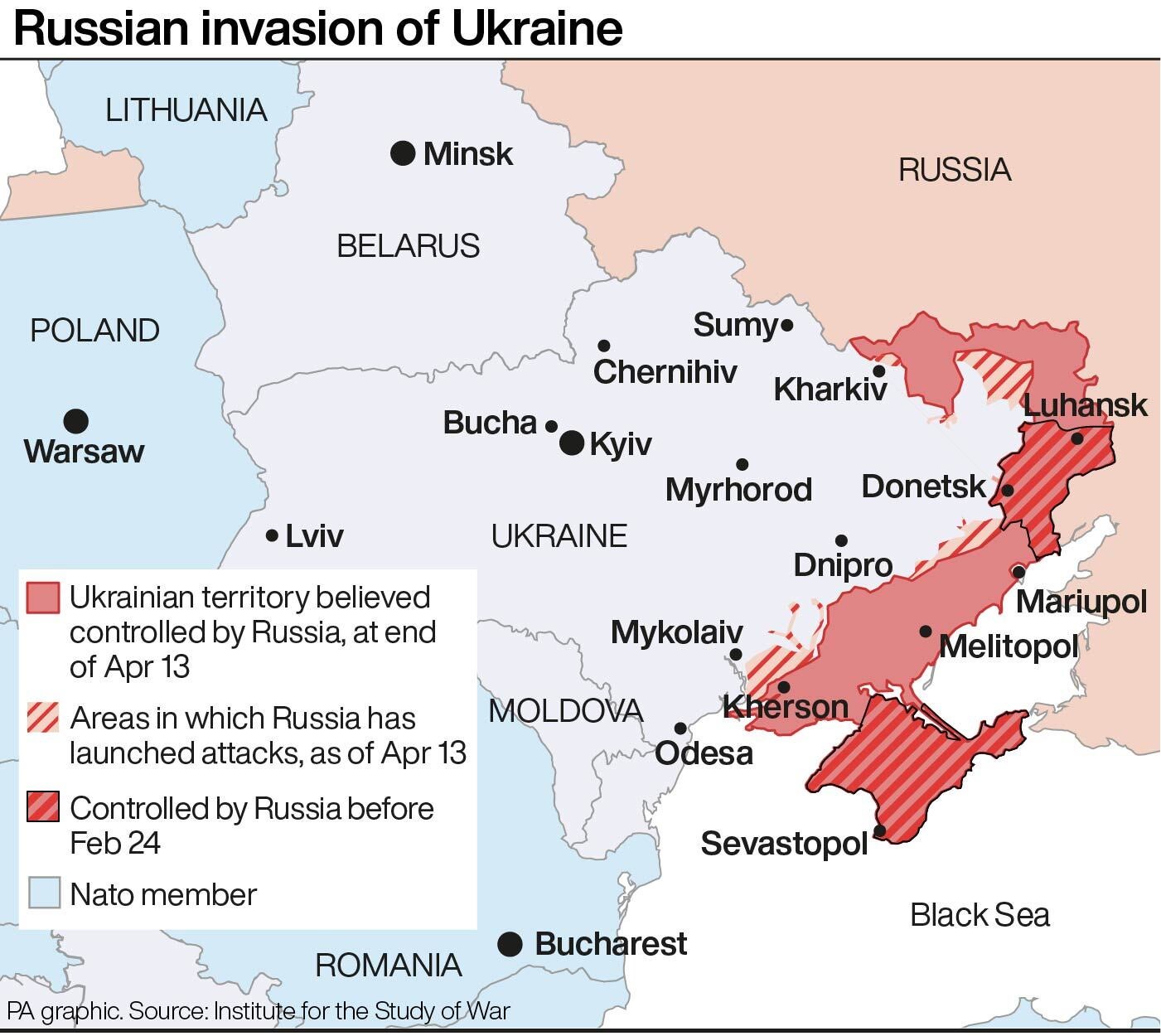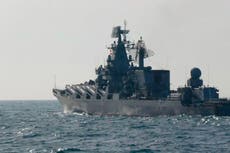Pentagon says Russian warship Moskva was sunk by two Ukrainian Neptune missiles
Loss of ship is major blow to Russian prestige seven weeks into war that already is widely seen as historic blunder
The Pentagon has said that the sunken Russian warship Moskva was struck by two Ukrainian Neptune missiles.
A senior US defence official confirmed on Friday that Ukrainian forces managed to sink the ship after Russia claimed the ship had been on fire, while Ukraine said its forces had attacked the vessel in the Black Sea, The Washington Post reported.
The Russian Defence Ministry said it would escalate attacks on Kyiv, the Ukrainian capital, in retaliation for attacks on its own assets. Explosions were reported on Friday outside Kyiv – Russian forces claimed in a statement that they had attacked a weapons factory in a suburb.
Russia is also preparing for new attacks in the eastern Ukrainian region of Donbas. Officials say it could be the bloodiest fighting yet as the battle moves onto more open fields after seven weeks of the war.
Russia appears to be on the verge of capturing Mariupol, the strategically important port city, after weeks of indiscriminate shelling and civilian suffering. Analysts have also indicated that Russia is likely to step up its assault across southeastern Ukraine after major setbacks.
Tensions are rising as Ukraine recaptured a close ally of Russian President Vladimir Putin and as Sweden alongside Finland move closer to possibly joining Nato.
The missile cruiser Moskva, named in honour of the Russian capital, was launched during the Cold War, saw service during conflicts in Georgia, Syria and Ukraine, and helped conduct peacetime scientific research with the United States.
Now the flagship of Russia’s Black Sea fleet has sunk in those waters off Ukraine while being towed to port after a fire onboard, the Defense Ministry in Moscow said.
It was an inglorious demise for the vessel initially christened the Slava, or “glory”.
The Russian Defense Ministry said the heavily damaged Moskva sank in a storm Thursday under tow after being gutted by fire. It previously said the blaze set off some of its weapons and forced the crew to evacuate. It denied there had been an attack by Ukraine on the ship, which would normally have about 500 sailors aboard.
Maksym Marchenko, the governor of the Odesa region, said Ukraine struck the ship late Wednesday with two Neptune missiles and caused “serious damage”.

The Moskva could carry 16 long-range cruise missiles, and its loss will greatly reduce Russia’s firepower in the Black Sea.
Its sinking represents a major blow to Russian prestige seven weeks into a war that already is widely seen as a historic blunder.
The warship was launched as the Slava from a shipyard in Mykolaiv in what was then the Soviet republic of Ukraine in July 1979, according to open-source intelligence firm Janes.
Commissioned in late December 1982, it was 611.5 feet (186 meters) long. It was designed to carry a crew of 476 with an additional 62 officers.
The Associated Press contributed to this report
The Independent has a proud history of campaigning for the rights of the most vulnerable, and we first ran our Refugees Welcome campaign during the war in Syria in 2015. Now, as we renew our campaign and launch this petition in the wake of the unfolding Ukrainian crisis, we are calling on the government to go further and faster to ensure help is delivered. To find out more about our Refugees Welcome campaign, click here. To sign the petition click here. If you would like to donate then please click here for our GoFundMe page.
Join our commenting forum
Join thought-provoking conversations, follow other Independent readers and see their replies
Comments




Bookmark popover
Removed from bookmarks